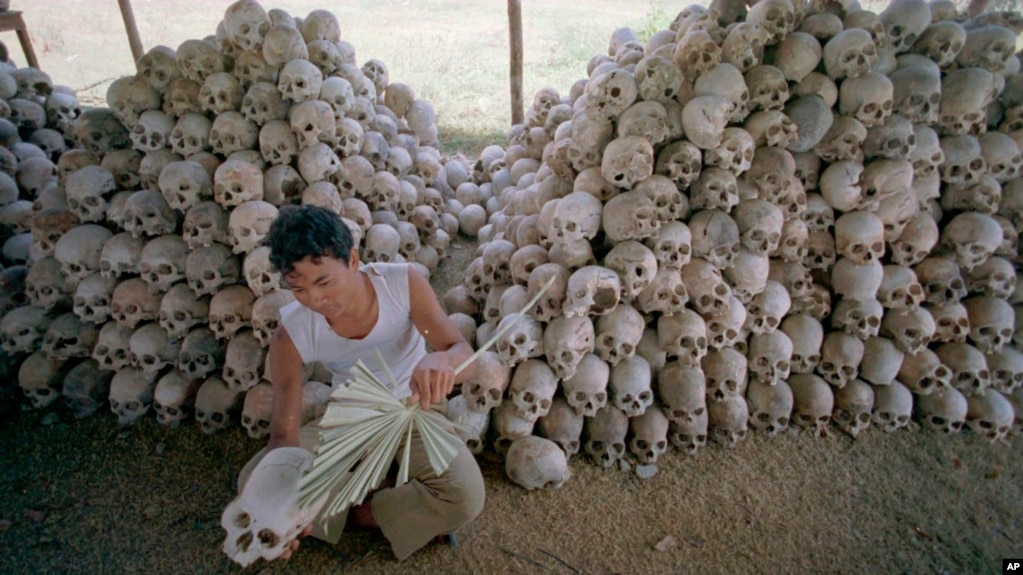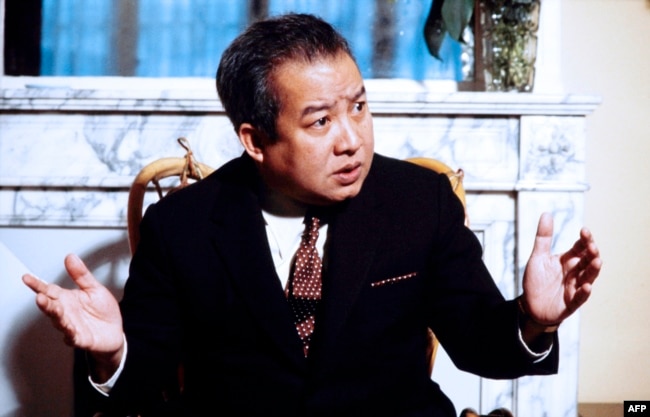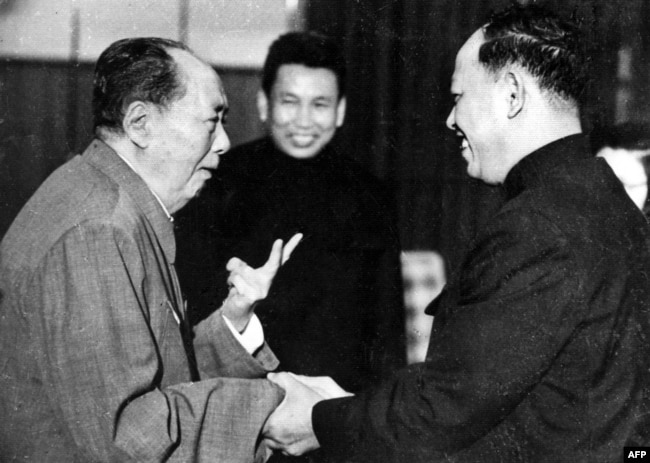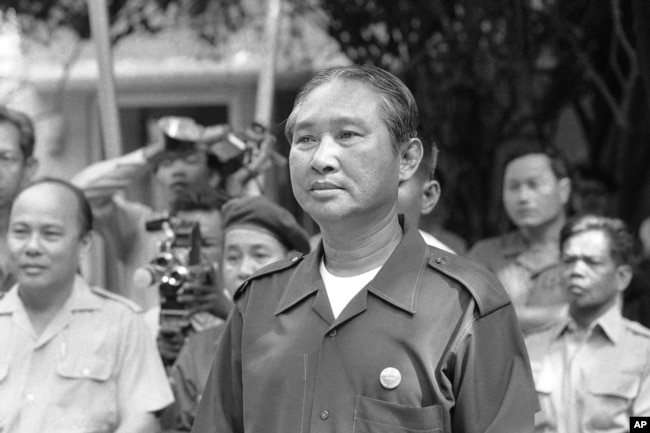Cambodian prime minister Hun Sen cemented his grip on power with lopsided general elections that came after authorities dissolved the main opposition party and shuttered independent media outlets. The military and police openly campaigned for the ruling party, which won all the seats in the legislature.
នាយករដ្ឋមន្ត្រីកម្ពុជាលោកហ៊ុន-សែនចាក់គ្រឹះអំណាចរបស់គាត់តាមរយៈការបោះឆ្នោតជាតិដែលខ្វះធម្មានុរូបច្បាប់ដែលបានប្រព្រឹត្តឡើងបន្ទាប់ពីអាជ្ញាធររំលាយគណបក្សជំទាស់ដ៏សំខាន់និងបិទប្រព័ន្ធផ្សព្វផ្សាយឯករាជ្យ។ មន្ត្រីយោធានិងប៉ូលីសបើកយុទ្ធនាការគាំទ្រគណបក្សគ្រប់គ្រងអំណាចយ៉ាងចំហរដែលគណបក្សនេះបានឈ្នះកៅអីសភាទាំងអស់តែម្តង។
Op-Ed: Key Developments by Freedom House Report 2019
Read more news on VOA in Khmer Language, and VOA in English
KEY DEVELOPMENTS IN 2018:
- The CPP won every seat in the lower house, the National Assembly, in July elections. The polls were held amid a period of repression that began in earnest in 2017, and saw the banning of the main opposition party, opposition leaders jailed or forced into exile, and remaining major independent media outlets reined in or closed. The CPP also dominated elections for the upper house, or Senate, held in February, taking every elected seat.
- The Phnom Penh Post, regarded by many observers as the last remaining independent media outlet in Cambodia, was taken over by a Malaysian businessman with links to Hun Sen.
- A Cambodian court sentenced an Australian filmmaker to six years in jail on charges of espionage. He had been arrested after denouncing rights abuses and filming political rallies.
- In November, the UN-assisted court known as the Khmer Rouge Tribunal found Nuon Chea and Khieu Samphan, two surviving leaders of the Khmer Rouge, guilty of genocide and crimes against humanity. The verdict for the first time legally defined the Khmer Rouge’s crimes as genocide.
OVERVIEW:
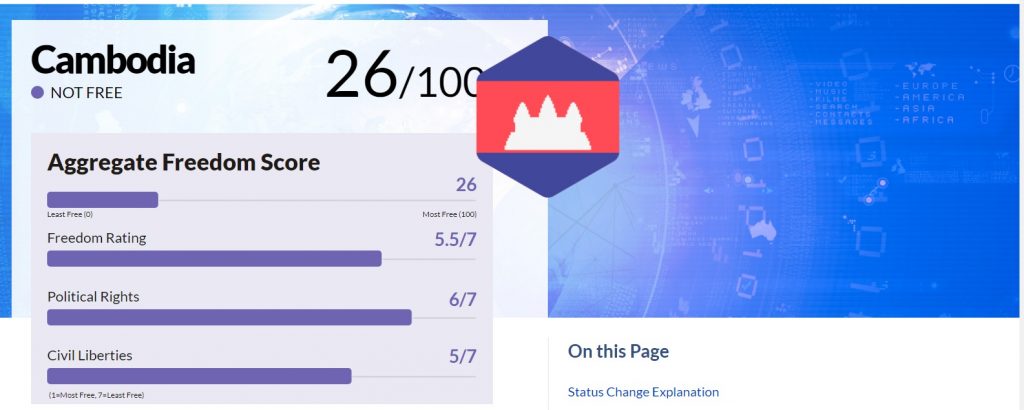
Cambodia’s political system has been dominated by Prime Minister Hun Sen and his Cambodian People’s Party (CPP) for more than three decades. The country has conducted semicompetitive elections in the past, but the 2018 polls were held in a severely repressive environment that offered voters no meaningful choice. The main opposition party was banned, opposition leaders were in jail or exiled, and independent media and civil society outlets were curtailed. The CPP won every seat in the lower house for the first time since the end of the Cambodian Civil War, as well as every elected seat in the upper house in indirect elections held earlier in the year. Political Rights and Civil Liberties:
POLITICAL RIGHTS: 6 / 40 (–4)
A. ELECTORAL PROCESS: 1 / 12 (–3)
A1. Was the current head of government or other chief national authority elected through free and fair elections? 0 / 4 (–1)
King Norodom Sihamoni is chief of state, but has little political power. The prime minister is head of government, and is appointed by the monarch from among the majority coalition or party in parliament following legislative elections. Hun Sen first became prime minister in 1985. He was nominated most recently after 2018 National Assembly polls, which offered voters no meaningful choice. Most international observation groups were not present due to the highly restrictive nature of the contest.
Score Change: The score declined from 1 to 0 because the incumbent prime minister was unanimously confirmed for another term after parliamentary elections that offered voters no meaningful choice.
A2. Were the current national legislative representatives elected through free and fair elections? 0 / 4 (–1)
The bicameral parliament consists of the 62-seat Senate and the 125-seat National Assembly. Members of parliament and local councilors indirectly elect 58 senators, and the king and National Assembly each appoint 2. Senators serve six-year terms, while National Assembly members are directly elected to five-year terms.
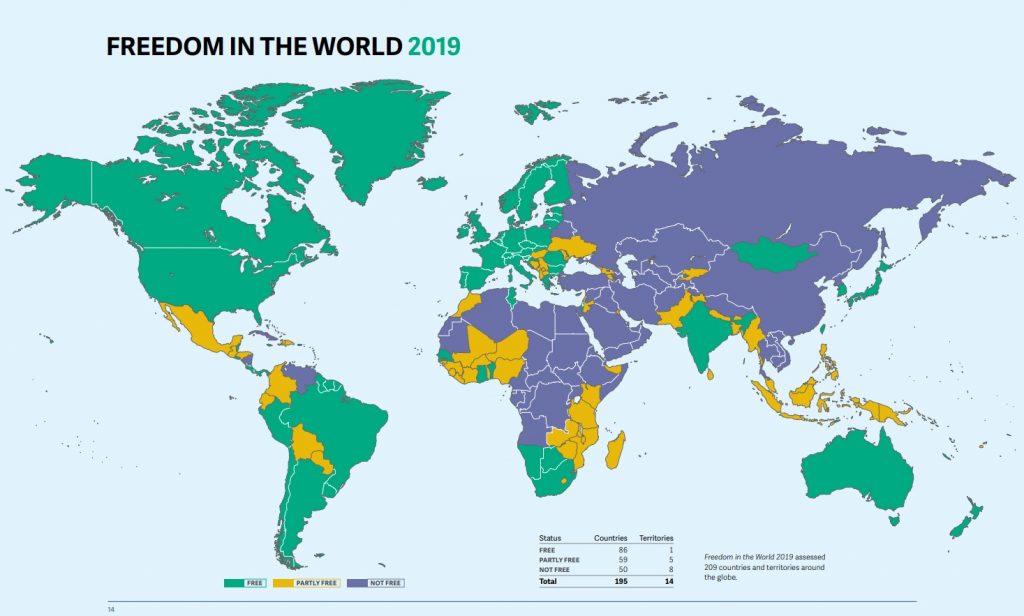
In 2018, the CPP won every seat in both chambers in elections that were considered neither free nor fair by established international observers, which declined to monitor them. In the months before the polls, the Supreme Court had banned the main opposition Cambodia National Rescue Party (CNRP) and jailed many of its members, and closed media outlets and intimidated journalists to the extent that there was almost no independent reporting on the campaign or the polls. Several small, obscure new “opposition parties” ran candidates in the lower house elections, though many of the parties were widely believed to have been manufactured to suggest multiparty competition. Following calls for an election boycott by former CNRP leaders, Hun Sen repeatedly warned that people who did not vote in the election could be punished. The election was condemned by many democracies. The United States responded by imposing targeted sanctions on Cambodian leaders, while the EU threatened to roll back a preferential trade agreement.
Score Change: The score declined from 1 to 0 because the parliamentary elections took place in a highly repressive environment that offered voters no meaningful choice, and produced a one-party legislature.
A3. Are the electoral laws and framework fair, and are they implemented impartially by the relevant election management bodies? 1 / 4 (–1)
In 2015, Cambodia passed two new election laws that permit security forces to take part in campaigns, punish parties that boycott parliament, and mandate a shorter campaign period of 21 days. The laws have been broadly enforced.
Voting is tied to a citizen’s permanent resident status in a village, township, or urban district, and this status cannot be changed easily. In 2017, an amendment to the electoral law banned political parties from association with anyone convicted of a criminal offense.
The National Election Committee (NEC) was reformed in 2013, but the CPP has since asserted complete control over its nine seats. Criminal charges were brought against the body’s one independent member in 2016, who was then jailed and removed from the body. The four NEC members affiliated with the CNRP resigned following the party’s 2017 dissolution. In 2018, the NEC sought to aid the CPP’s campaign by threatening to prosecute any figures that urged an election boycott, and informing voters via text message that criticism of the CPP was prohibited.
Continue reading
